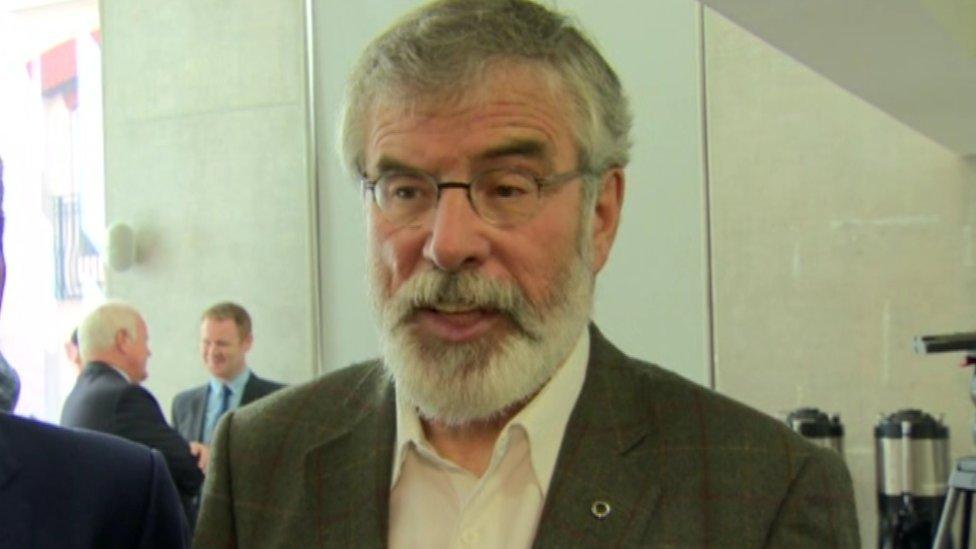NI power-sharing window 'closing rapidly' - Brokenshire
- Published
- comments
Northern Ireland political talks resumed at Stormont on Monday
If a Stormont Executive cannot be re-established the government will be forced to legislate for an NI budget, the secretary of state has said.
James Brokenshire was talking after meetings with the five main parties to try and resolve an eight-month impasse.
The NI executive collapsed in January, and the last round of power-sharing talks ended in stalemate in June.
The two biggest parties, the unionist DUP and republican Sinn Féin, blame each other for the lack of progress.
Their government broke down over a number of issues with the final straw for Sinn Féin being the DUP's handling of a botched green energy scheme.
If agreement cannot be reached, Mr Brokenshire is under a legal duty to call a fresh election, but he is understood to be reluctant to do that.
"The window of opportunity to restore devolution… is closing rapidly," he said.
"Direct and honest dialogue... without a running commentary" was needed for Northern Ireland's politicians to resolve the crisis, he added.
"While the UK government has responsibilities… fundamentally it is for them to establish where their space for resolution lies and how to achieve this.
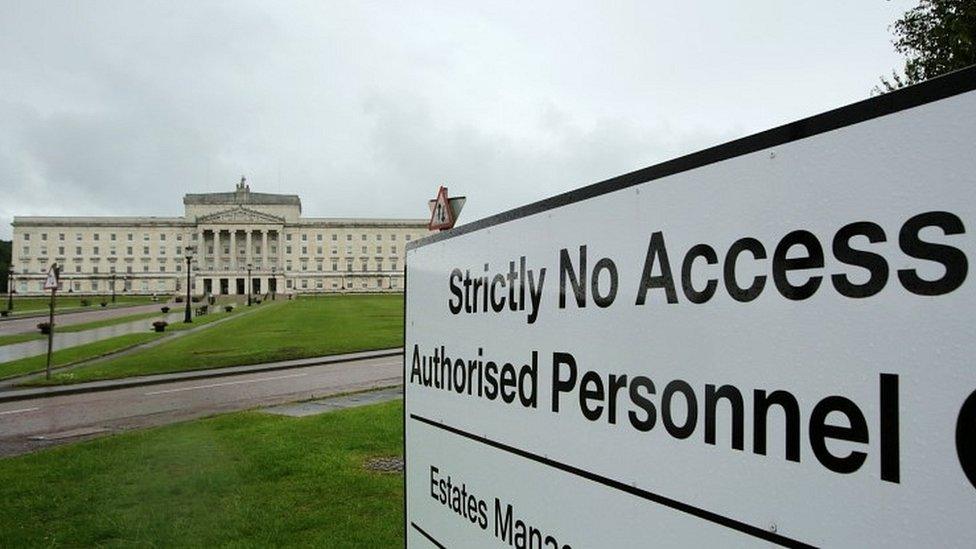
Martin McGuinness resigned in January in protest against the DUP's handling of a botched green energy scheme
"And with pressures in public services already evident, most particularly in the health services, the need for intervention is increasing clear."
Mr Brokenshire said the UK government had a duty to Northern Ireland's people of Northern Ireland to provide political stability.
"If this political impasse continues I will be forced to introduce legislation in Westminster for a budget for Northern Ireland and consider next steps," he said.
Common-sense solution?
Earlier, Sinn Féin's leader at Stormont, Michelle O'Neill, said a power-sharing agreement could be reached "in days" if parties had the right attitude to talks.
But the DUP blamed Sinn Féin for rejecting its proposal to restore the assembly immediately while a parallel process dealt with key sticking points, such as a disputed Irish Language act.
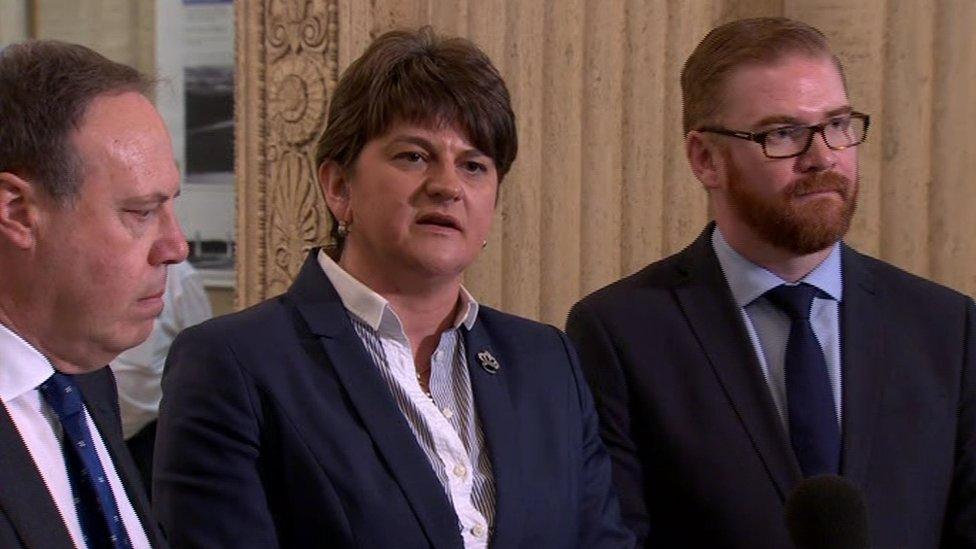
DUP leader Arlene Foster said Sinn Fein 'are the barrier and will continue to be the barrier' to restoring the Executive
The DUP leader unveiled the proposal that, she said, could restore the assembly at a DUP meeting in Belfast on Thursday.
Mrs Foster described it as a "common-sense solution", but Sinn Féin said the DUP had not addressed the cause of Stormont's collapse.
Sinn Féin also said the issue of a parallel process had been "discussed and disregarded" before, and it was "certainly not a new offer".
Mrs Foster said she was disappointed by Sinn Féin's swift rejection of her proposal.
"What James Brokenshire is focused on at present is trying to bring back devolution to Northern Ireland," she said.
"He has decisions to take around appropriation bills in October, so if there is no devolution by that stage... he will have to take action in the interests of people of Northern Ireland and in the interests of good government as well."
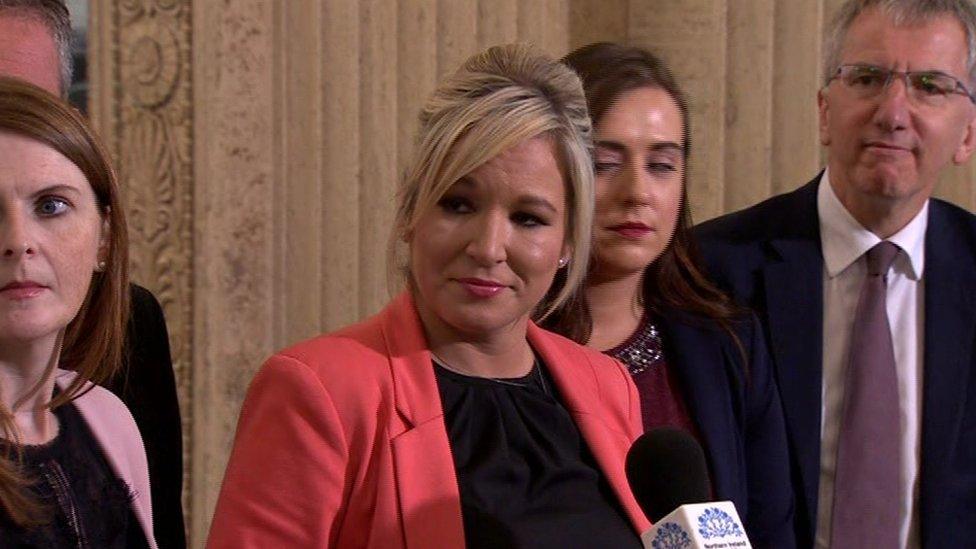
Michelle O'Neill said an agreement could be reached if parties had the right attitude
But Mrs O'Neill said her party remained committed to resolving the current political impasse - and that a deal could be "done in days" if parties took the right approach to talks.
"We need a short, sharp and focused negotiation," she said.
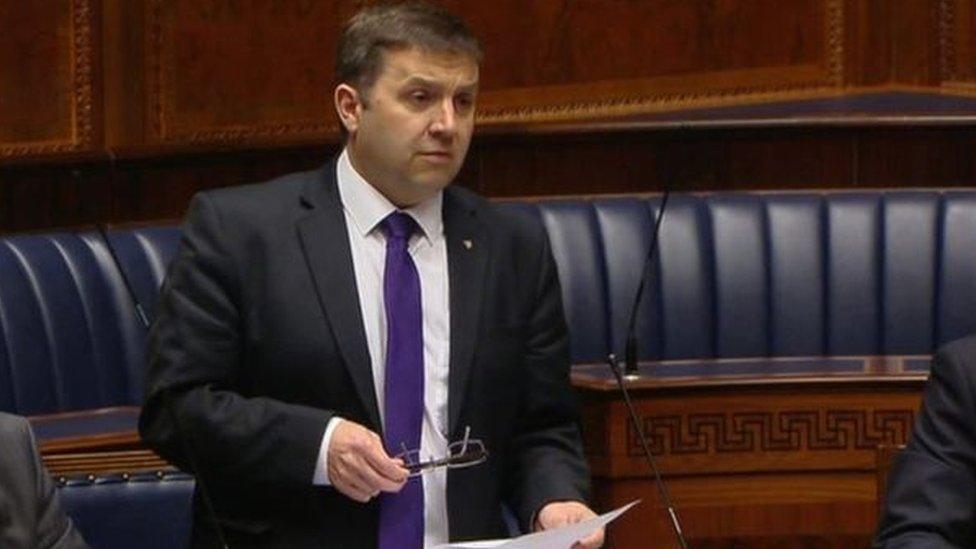
Robin Swann said direct rule would not be a good option for Northern Ireland
Ulster Unionist leader Robin Swann said it may be time to consider a voluntary coalition, instead of the mandatory coalition, to govern at Stormont.
"Direct rule is not an option that serves Northern Ireland well at this time," he said.
"The biggest challenge and opportunity that Northern Ireland faces is Brexit, and direct rule ministers will not serve Northern Ireland well in the talks that lie ahead.
"It's imperative that Northern Ireland is represented by Northern Ireland ministers."
The SDLP leader Colum Eastwood said parties needed to put their "cards on the table" as voters were being asked to pay the price.
"With healthcare professionals, education providers and the community sector crying out for support, all political leaders have a responsibility to find a way forward," he said.
Alliance MLA Stephen Farry urged Mr Brokenshire bring in a mediator, and preferably an international one, to resolve the impasse.
"The DUP and Sinn Fein cannot talk directly to one another, they're engaged in megaphone diplomacy," he said.
The TUV leader Jim Allister said: "It is the Secretary of State's duty to provide government for Northern Ireland. He has delayed long enough. Waiting for Stormont to work is utter folly. It is unfixable in its present form.
"Northern Ireland needs government. Stormont patiently cannot provide it and therefore we need need to move to direct rule."
The late deputy first minister, Sinn Féin's Martin McGuinness, stood down in protest against the DUP's handling of an investigation into the scandal surrounding a botched green energy scheme that could cost taxpayers millions, in a move that triggered a snap election in March.
One of the major sticking points in negotiations has been Sinn Féin's demand for an Irish Language Act.
Sinn Féin president Gerry Adams has been adamant there would be no Northern Ireland Assembly without such an act.
- Published15 February 2018
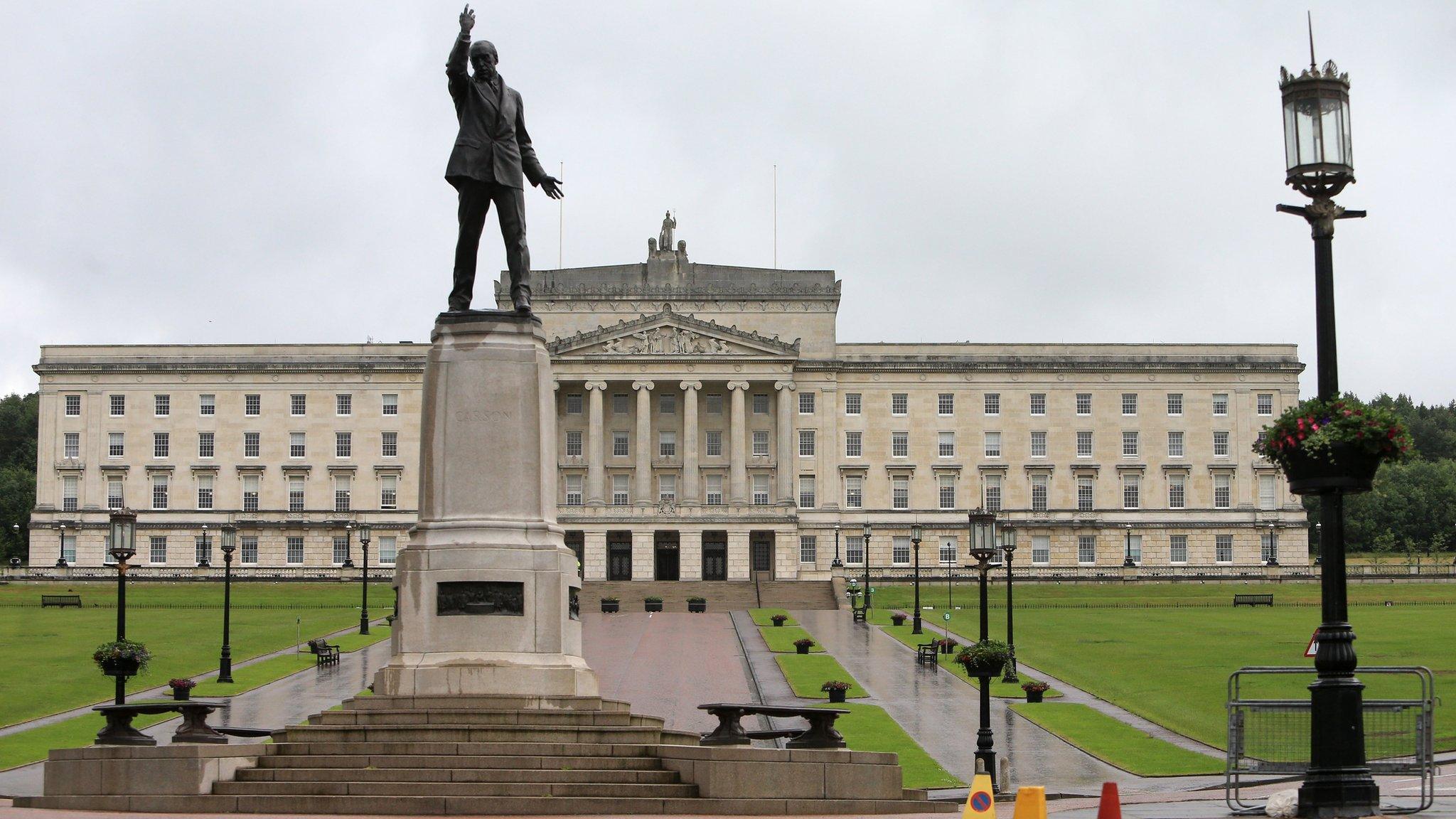
- Published1 September 2017
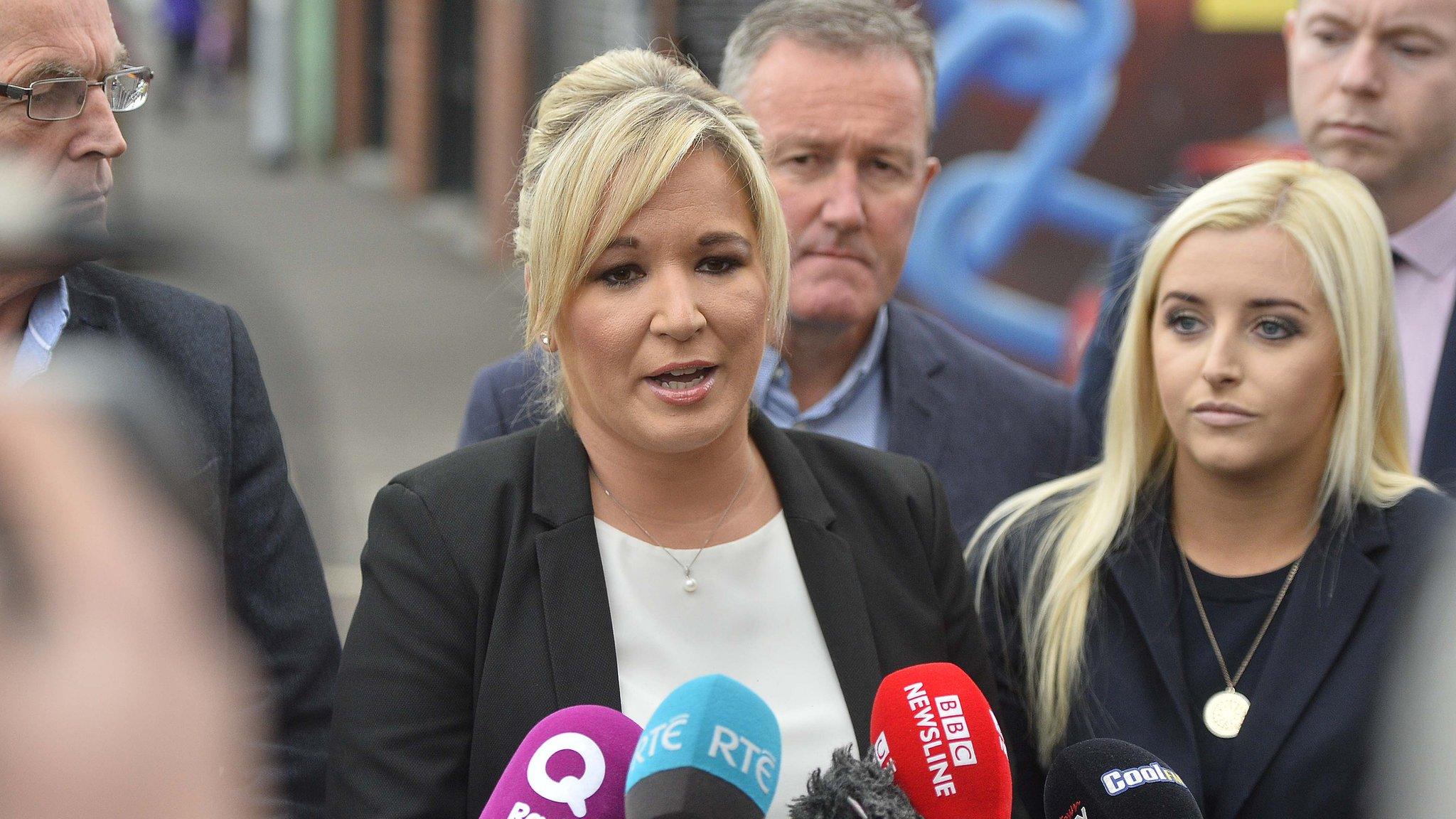
- Published1 September 2017
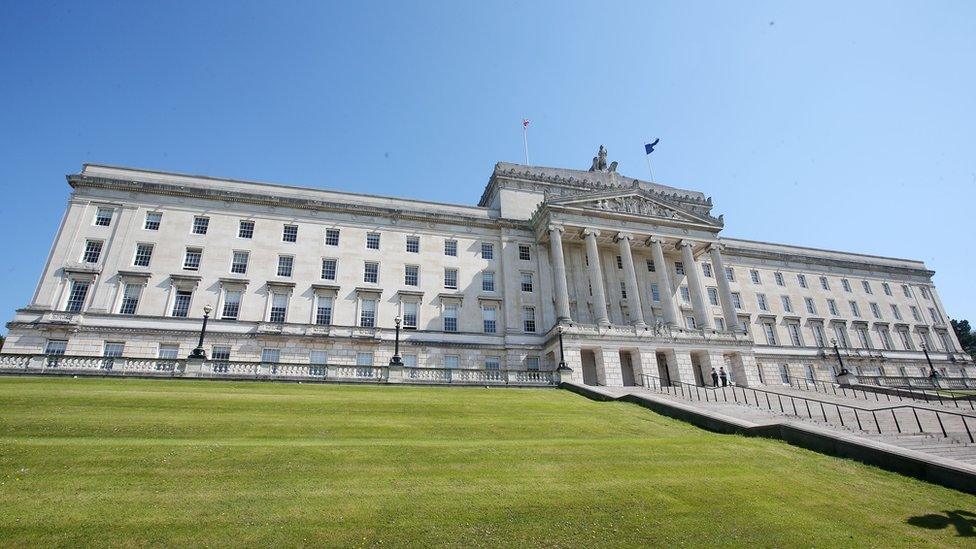
- Published1 September 2017
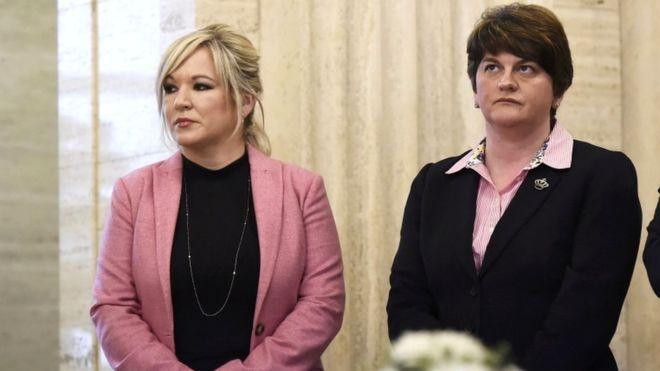
- Published4 July 2017

- Published30 August 2017
